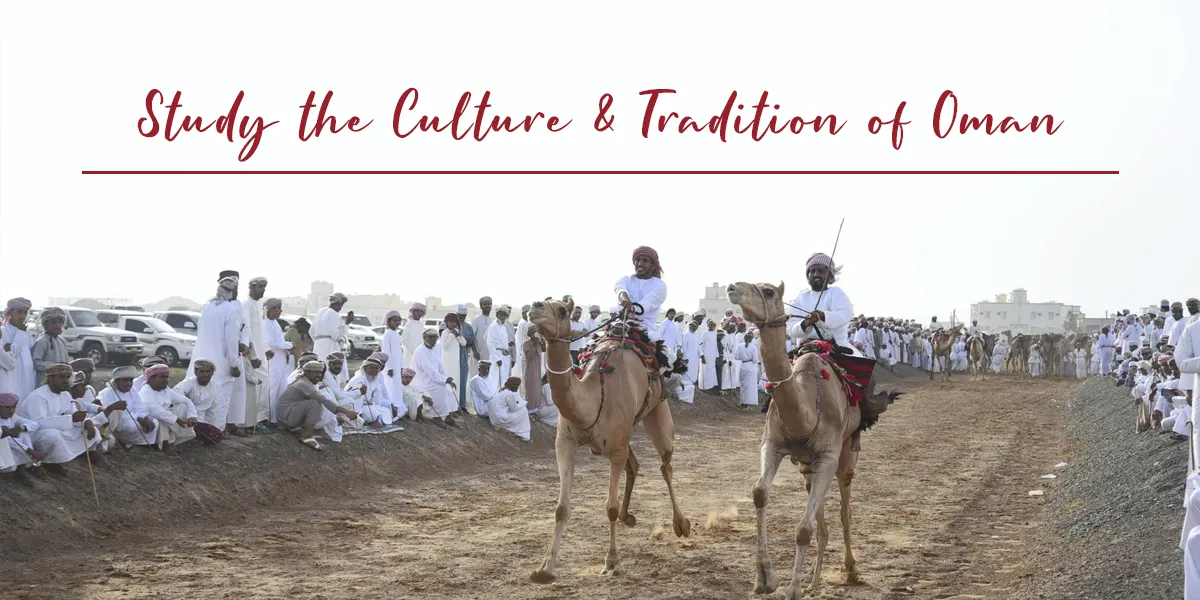A country in the Arabian Peninsula, the Sultanate of Oman is blessed with a unique culture that sets it apart from its counterparts. The traditions of Oman are a living testimony of the country's exoticism and charm that has remained intact for a long time now.
Representing a piece of the past, the culture plays a vital role in shaping the nation's societal and familial views. A crucial determining factor of how the community reacts, responds and grows, culture shapes every aspect of one's lifestyle. Giving a sense of belongingness, especially when everyone speaks the same language, culture embraces the spoken part with which the society communicates.
There exist several Oman culture facts that one must know to understand the country better. The Pearl of Arabia, the majestic Sultanate, is famous for its prehistoric human settlement, which again has served as a deciding factor in molding the culture and traditions of the nation.
Well, here is a tour of the country's exotic culture that one must know before visiting the land: -
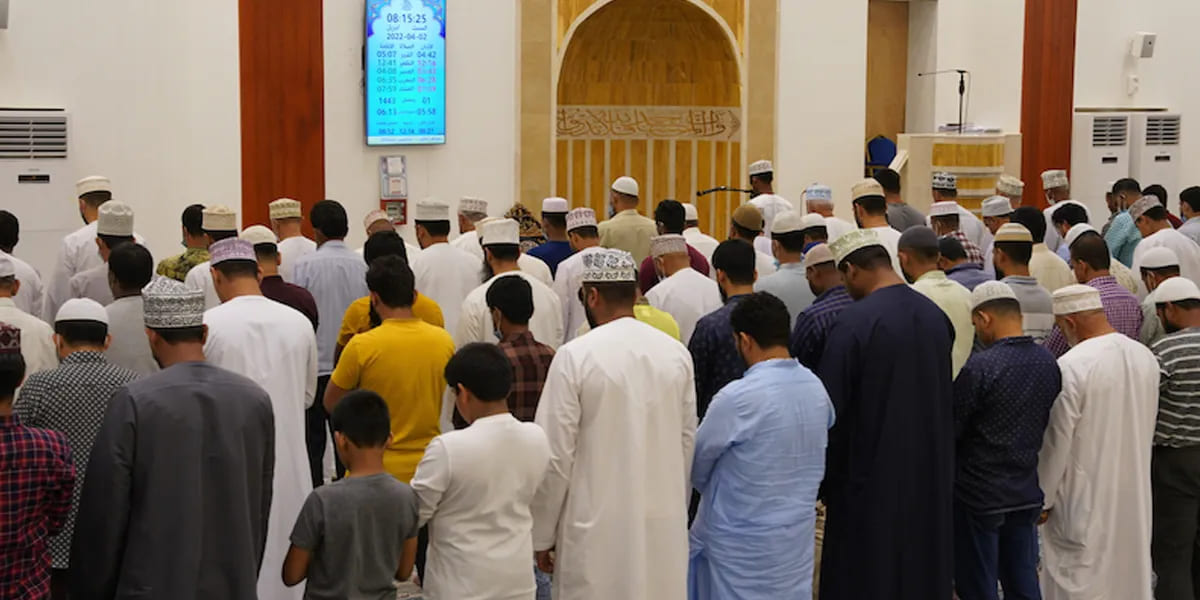
A Look into Oman's Religious Inclination
As with the rest of the Arabic world, the Omani land is closely tied to the Islamic religion and faith. As such, mainly the population in the country is Muslim. However, most of them practice Ibadi or Ibadism, a form of Islam that originated in the country and is distinct from the majority of Sunni and Shia denominations. The society of Oman is predominantly tribal, with each tribe having its own culture and customs.
Amongst the culture of Oman, there exists an austere nature of Ibadism. Per their religion, the Ibadis are averse to alcohol, and modesty is the norm. In public, women and men are expected to cover their shoulders, arms, and legs. During Ramadan, Oman is relatively quiet during the day, and it is considered unlawful to grab a bite, drink or play loud music in public during the month.
Their faith's impact is seen in the country's culture and elaborate laws. Sharia law is what is practiced in many pockets of Oman. As such, Ibadism expects nothing but strict adherence to Sharia law at all times and in all places. Things like singing and dancing are not appreciated in the Omani culture. Like other Islamic countries, there also exists the importance of all the Islamic festivals in the traditions of Oman, with the nation having the maximum diverse culture in the Gulf Cooperation Council.
The country ranks higher in religious tolerance, with Hindus, Sikhs, Jews, Buddhists, and Christians constituting a good part of the population. The Omani society accepts different faiths but still has a social hierarchy system.

Peeping into Oman's Clothing System
The traditional clothing in Oman is another aspect of the country that reflects the culture of the nation. In keeping with the country's high temperatures, the traditional attire of Oman is loose-fitting for ventilation but one that covers the body to maintain modesty.
Here, men wear long, ankle-length gowns called dishdasha. For formal occasions, they wear a beige cloak called a Bisht with intricate gold lining. The most common color worn by Omani men is white; however other colors are also worn occasionally, such as brown, lilac, and black. The women usually wear burqas or full-length skirts with a headdress called Lihaf, embellished with sequins and embroidery, which make them amazingly stunning.
Both genders wear kohl which accentuates their eyes and provides protection from sunlight. As for accessories, men carry the traditional dagger called Khanjar and a cane called an Assa, whereas women wear intricate earrings, necklaces, and bracelets. Traditional women's footwear is a kind of wooden platform shoe that is quite attractive. At present, most women prefer to wear sandals.
The culture and heritage of Oman have a crucial contribution to the country that leads to a tradition that has remained intact for centuries. Ripped jeans, dodgy T-shirts with inappropriate slogans or images, and elaborate piercings are not liked in rural villages. Western clothing prevails in certain places, such as foreign-oriented tourist hotels, although it's still polite not to wear a bikini away from the pool or beach.
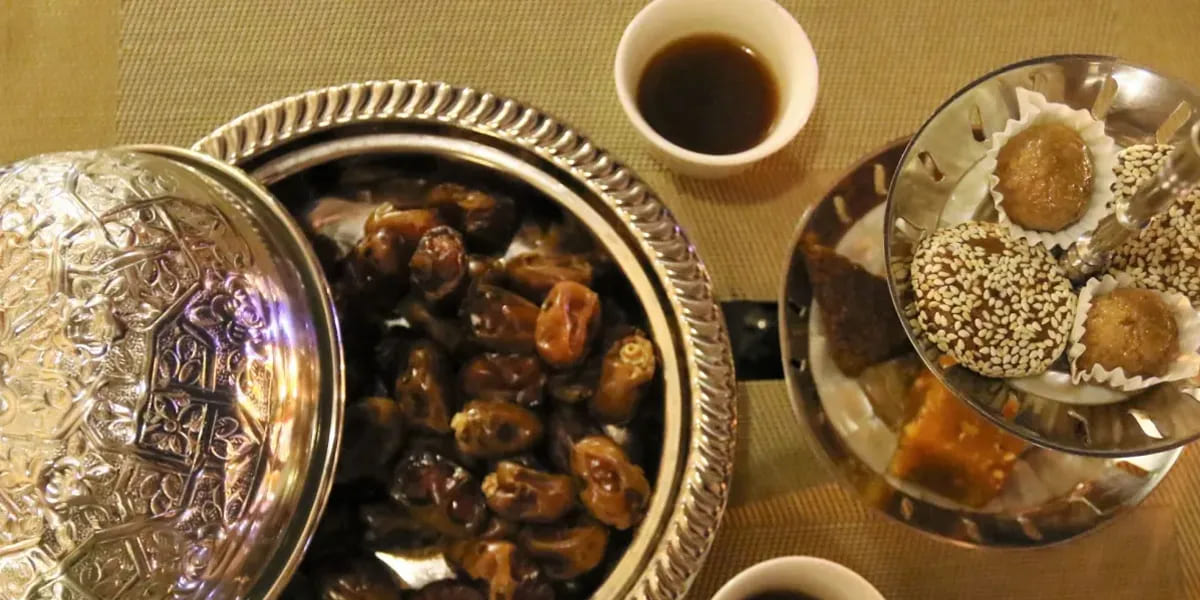
A Taste of Omani Cuisine
With influences drawn from Indian, Persian, North African, and Mediterranean cuisines, the traditional food of Oman is a sumptuous concoction of spices, marinades, and herbs.
Chicken, lamb, and rice are staples in the nation, seasoned with ingredients like saffron, ginger, and nutmeg. Due to the country's long coastline bordering the Arabian Sea, all kinds of seafood are consumed. Here, tea and yoghurt drinks are also popular.
Amongst the most loved dishes here is Mashai, a sumptuous roasted kingfish from Oman's coast with a tinge of aromatic lemon rice. Another cuisine is Ruz al Mudhroub, a rich rice dish served with fried fish. Arsia is yet different kind of rice-based dish of well-roasted lamb served with a sour sauce called the tershe. Owing to its location in the Middle East, Omani cuisine also includes delicious kebabs and shawarmas. Harees is another unique Omani traditional dish usually cooked for special occasions. Made from wheat mixed with meat, the dish is traditionally served with a special sauce.
The traditions of Oman are shown in their food culture that one must know about before landing in the country. The Omanis possess an assortment of traditional desserts such as Luqaimat, which are deep-fried balls of flour flavored with cardamom and halwa, although Omani halwa is wheat-based and slow-boiled over a wood fire. People also have unique dishes prepared mainly for traditional Islamic occasions. Wide varieties of dishes are only prepared during the holy month of Ramadan.
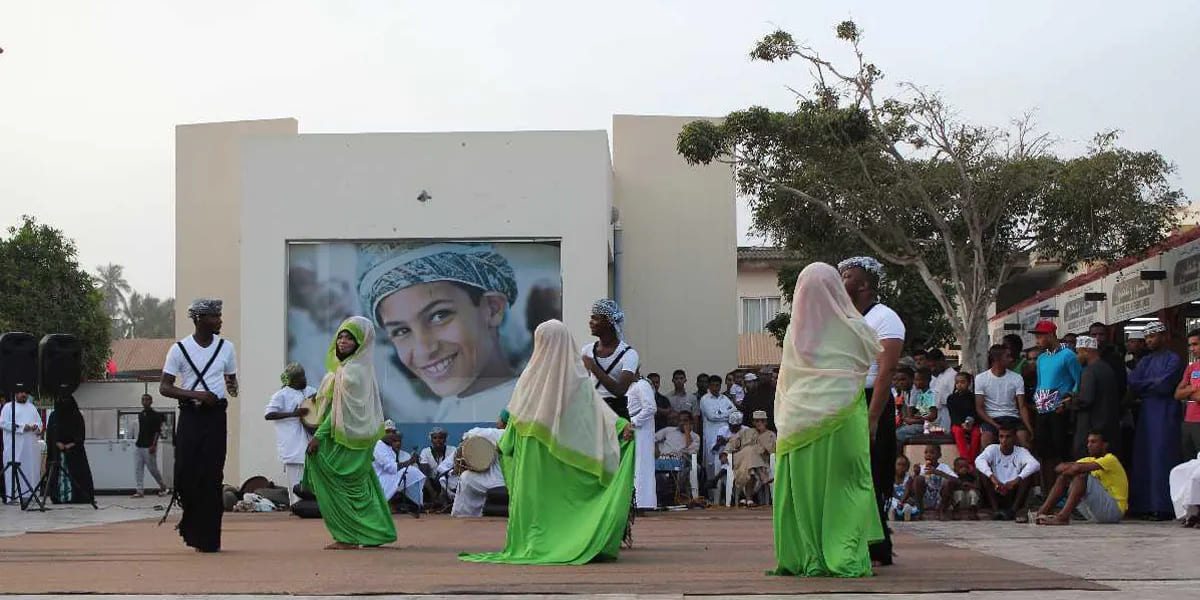
The Magnificent Social Customs of Oman
The lifestyle of Oman is affected by social customs, which play a vital role in the overall aspect of the land. The locals enjoy good conversation and are polite. To begin with, inquire about their family, health, etc., before starting any business talk. However, when making inquiries about family, one must be tactful and limit questions about the house's women. It is also illegal in Oman to discuss and spread rumours about their Sultan's private life.
As a tourist, if you'd like to take photographs with locals, remember to ask for their permission first, especially when it comes to photographing women. It is advisable not to push the issue further if they are uncomfortable, as, in their culture, women are not open to people of the opposite gender. It's also worth knowing that even inappropriate hand gestures are punishable under Omani law.
The Omanis are humble and welcoming people. As such, public displays of anger are avoided and not entertained; neither are violent or rude gestures. In the culture of Oman, locals believe in conducting oneself properly in public to maintain a good reputation. The most common and usual greeting in the Sultanate is handshakes, although locals are known to traditionally welcome each other by exchanging a kiss on the cheek.
People have a tradition of inviting people to their homes if they take a liking to them. Typically, guests are served dates and Omani coffee. Another custom prevalent in the land is carrying a small gift if visiting each other's homes and taking off shoes before entering the premises.
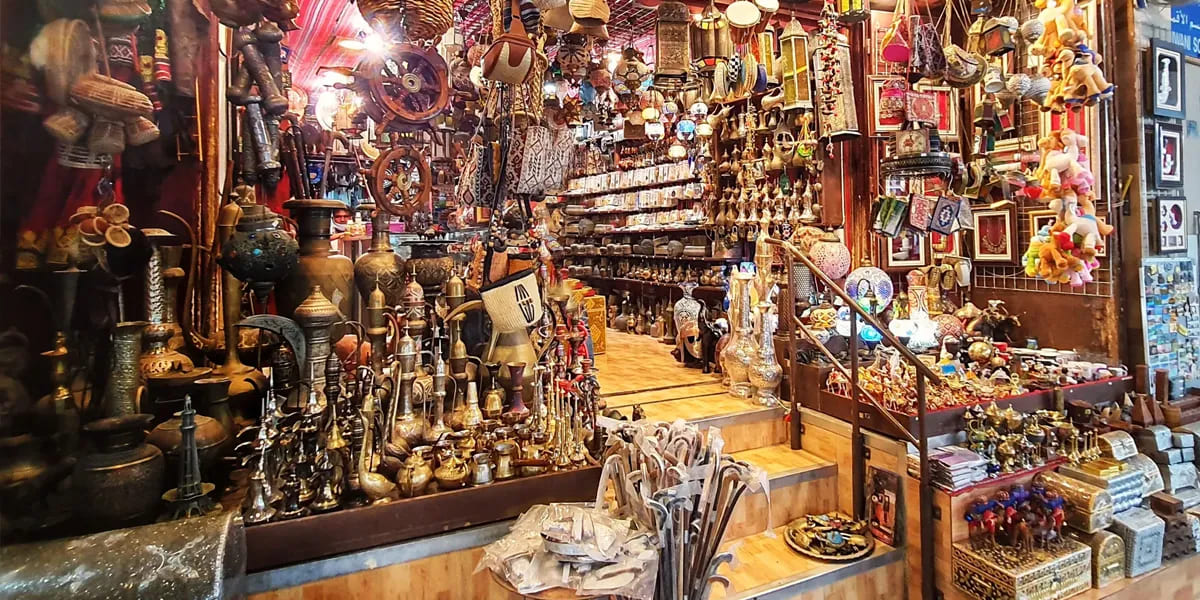
Oman and its Vibrant Souqs
Traditional marketplaces in Oman are other aspects of Omani culture that have remained untouched by time. Some streets in the country house Souq and old markets that sell the best souvenirs you can take home from your holidays. These souqs are one of the best places to shop for specific souvenirs like Bedouin jewelry, silver khanjars, incense burners, and frankincense. Even live cattle and goat markets are held at the souq every Friday, which one can be involved in while visiting the country.
From authentic Oman textiles to jewelry and other hardware items, Oman is the best place where you can get an affordable rate for all your desired accessories. Certain souqs like the Nizwa or Muttrah souq has vast shopping options for pottery, dates, and even fresh fruits. Don't forget to haggle in the marketplace, as it is part of the souq culture of the Sultanate of Oman.
Adding to the traditions of Oman, the Souqs flaunt their vintage and rustic charm, where there are old architecture, traditionally built houses, and shops dating back hundreds of years. The beautiful sandy-coloured buildings give the Souq a unique and enchanting look that is hard to overlook.
The traditions in Oman can be experienced well at the marketplaces and old souqs. Shopping in Oman is undoubtedly the best experience as the vibrant marketplace, and the quality of art and crafts displayed in the place are indescribable.
Omanis have become used to tourists and ex-pats in their land. However, to date, they are traditional in their beliefs, and it's best to remain respectful of their culture and age-old customs.
As such, the Sultanate is a beautiful land with humble people and breathtaking landscapes. The culture of Oman is a depiction of how the people have evolved over time and have kept their traditions and customs intact, away from the ravages of time.
Useful Info

